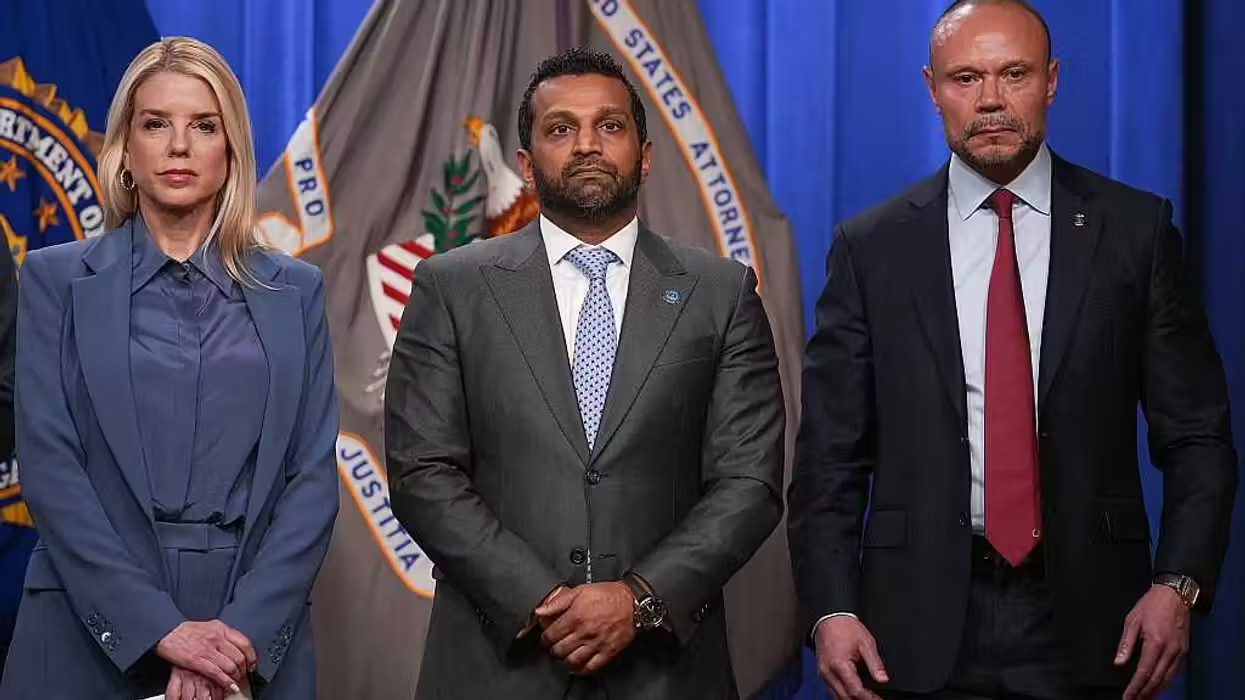Ahead of the House Budget Committee’s markup of the Republicans’ health care plan, the committee’s chairman, Rep. Diane Black (R-Tenn.), said she remained diligent about one of her main responsibilities — ensuring other congressional lawmakers are fully and accurately informed about the plan.
The American Health Care Act — sometimes referred to as Trumpcare or Ryancare — narrowly passed the House Budget Committee Thursday even as Republicans remain divided over the Obamacare overhaul. House conservatives, many of whom are in the House Freedom Caucus, contend that the bill does not stray far enough from the Obama administration’s health care legislation.
The budget committee narrowly voted to advance the legislation with a vote of 19 to 17 Thursday with three Republicans joining all of the Democrats on the committee to vote against it. Those three Republicans — Rep. Mark Sanford (S.C.), Rep. Dave Brat (Va.) and Rep. Gary Palmer (Ala.) are all Freedom Caucus members.
But while Black admits it’s not a perfect bill, she dismissed criticisms from fellow Republicans by making one point — for the past six or seven years, Republicans have promised to repeal and replace Obamacare.
“If we do not do that, I can tell you that the people in my district would not be happy,” Black told TheBlaze in an interview ahead of Thursday’s markup.
Black said it’s her “responsibility” to help members truly understand the legislation when asked about how she personally is working to get fellow Republicans on board with the plan.
“Just helping our members who are not in those committees [that have deeply looked at the legislation], who haven’t been immersed in it, really understand what the bill does and to dispel those things that are put out there that are not really accurate,” Black said. “So that’s what I’m trying to do — make sure members are fully informed about what the bill does and doesn’t do. And that really is my responsibility.”
Black said she met with President Donald Trump twice last week and was encouraged by his support. She also said Office of Management and Budget Director Mick Mulvaney, a former Freedom Caucus member, was also supportive of the plan.
“It was very encouraging that [Trump] just encouraged us to move forward with our members, helping them to understand the bill and to understand this is a process,” Black said. “Because it will have floor discussion and debate and more additions and deletions before it goes over to the Senate. So it’s not the end of the process but the beginning of the process.”
While the plan is backed by the White House, Trump seemingly left the door to changes wide open Wednesday night, telling Fox News’ Tucker Carlson that “we’re going to have negotiation” with the legislation.
And while Republicans fight over the new controversial health care legislation, the nonpartisan Congressional Budget Office also rattled the plan this week with its report on the cost estimate. The CBO predicted 24 million fewer people will be uninsured by 2026 under the new health care law — a number widely criticized and peddled by both Republicans and Democrats.
“I think that throwing 24 million Americans off of health insurance, raising premiums for older low income Americans, while giving $285 billion in tax breaks to the top 2 percent is a disgusting and immoral proposal,” Sen. Bernie Sanders (I-Vt.), a 2016 Democratic presidential hopeful, said. “Thousands of Americans will die if this legislation is passed, and we have to do everything we can to see that it is defeated.”
But Republicans argue that there is a difference between unwantedly losing insurance and no longer buying insurance under the Obamacare mandate.
Health and Human Services Secretary Tom Price slammed the report in a statement, saying its numbers “defy logic.”
Price said:
The CBO report’s coverage numbers defy logic. They project that zeroing out the individual mandate — allowing Americans to choose whether to have insurance — will result in 14 million Americans opting out of coverage in one year. For there to be the reductions in coverage they project in just the first year, they assume 5 million Americans on Medicaid will drop off of health insurance for which they pay very little, and another 9 million will stop participating in the individual and employer markets. These types of assumptions do not translate to the real world, and they do not accurately estimate the effects of this bill.
House Budget Committee spokesman William Allison told TheBlaze that there is “a pretty big distinction” between losing coverage and “choosing not to go out there and buy coverage in the first place.” But he also speculated that the CBO might have a higher standard for what is considered “covered” in the first place.
“So our bill really strengthens [Health Savings Accounts] which are really valuable tools for young and health folks who don’t need a really robust plan but just want money aside if they need a quick prescription or pain medicine,” Allison said. “So there might be a lot of people who do not have what CBO considers to be insurance covered, but they have the means and access to get the health care that they need.”
Another point of contention with the Republicans’ health care plan is Medicaid. While still a presidential candidate, Trump promised he would ensure there would be no cuts to the Medicaid program.
Under the American Health Care Act — as it stands now — the enhanced federal funding for Medicaid will end by 2020, and the program would be overhauled. Under Obamacare, 31 states — including 16 under Republican leadership — chose to expand Medicaid.
However, a GOP source with knowledge of congressional Republicans’ debate over the health care bill, said not to expect the Medicaid provision, as it stands now, will continue on with the bill.
“I think that the Medicaid provision in the bill is probably going to change at some point,” the source told TheBlaze. “I think there’s going to be changes to that and what turns out to be the final product is different than what we see today.”
[graphiq id="5EwK2cJdq1n" title="Republican Lawmakers' Responses to the AHCA" width="600" height="375" url="https://w.graphiq.com/w/5EwK2cJdq1n" ]
During an interview with TheBlaze, Allison stressed that one of the main misconceptions about the Republicans’ health care law is the process it goes through.
Allison said:
The main thing with this health care bill is we’re using the reconciliation process which is very powerful because we can dodge the filibuster in the Senate but it does restrict some of the things we can do. Everything in reconciliation has to have a fiscal impact, so spending and taxes, it just can’t touch the regulatory side of Obamacare. So that’s why a lot of the regulations will have to be addressed through Sec. Price with HHS or do additional information to go after them.
Which I know is really frustrating for everybody, including the chairman, but that’s just the rules of the game with reconciliation and that’s what we’re dealing with right now. I think that’s the biggest misconception out there with people saying, "Why can’t you just repeal everything." Honestly, we’d love to do that, but we just can’t.
Black also iterated that some in Congress and in the general public tend to forget or not realize the plan is a phased process.
After advancing in Black's committee, the legislation will head to the Rules Committee.







